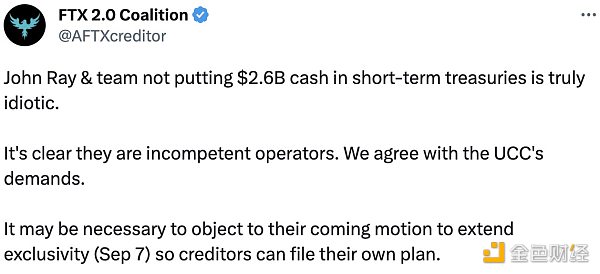After bitcoin skyrocketed nearly four times, what happened to the cryptocurrency predators?
It is said that the predators are swollen.
Bitcoin continued to skyrocket this week, and bitcoin rose nearly four times in the first half of this year, making it one of the best performing assets this year. Not surprisingly, institutional investors have poured into Bitcoin, earning a lot of money in the frenzied price rebound.

According to the latest data provided by bitcoin investment company Grayscale, with the current price of bitcoin skyrocketing, the total grayscale encryption assets reached nearly $3 billion, and the grayscale data on May 1 showed the company's total encryption assets. It was only $1.3 billion, less than two times in two months.
- Exclusive Interview 丨 R3 Asia Pacific Architecture Director: Asia Pacific countries "all play each", Corda can provide solutions according to local conditions
- Snowden suddenly "shows" at Bitcoin 2019, talks to David Bailey
- Digital asset management chaos: institutional chaos recovery


Hedge funds become the main force
Analysts expect the agency to accelerate the influx of cryptocurrencies this year, and this is now the case.
The grayscale report for May shows that hedge funds are buying bitcoins insanely. In the first quarter of 2019, the amount of hedge funds investing in grayscale products rose to $24 million, compared to $1 million in the fourth quarter of 2018. Grayscale added that 56% of total investment in the quarter was driven by hedge fund inflows, which increased the company's total capital inflows by 42% from the previous quarter. The Gray Bitcoin Trust (GBTC) is the biggest beneficiary of hedge fund inflows, accounting for nearly $2.85 billion in total grayscale management assets.
Fundstrat co-founder Thomas Lee said, "Because Bitcoin has risen sharply, it is not surprising that GBTC is soaring." Therefore, in order not to miss the bitcoin market, the organization should also look for suitable products to enter.
Winklevoss twin brothers assets double
Bitcoin has rebounded frantically. In addition to the rapid increase in the total assets of investment companies such as grayscale, other cryptocurrency predators also have good returns. According to foreign media reports, the wealth of Winklevoss twin brothers has more than doubled since January. According to the Bloomberg Billionaires Index, the total net worth of Tyler Winklevoss and Cameron Winklevoss (mainly composed of bitcoin and crypto assets) climbed to $1.45 billion, the highest since March 2018. At the beginning of this year, its total assets were $654 million.
The Winklevoss twin brothers are known for their image of the 2010 movie “Social Network” and are early investors in Bitcoin. In March, when bitcoin prices were below $4,000, they said better supervision and compliance would help bitcoin prices rise.
More institutional predators focus on bitcoin
Despite geopolitical tensions and stock market volatility, investors are worried about rising sentiment, bitcoin prices are still rising, which strengthens Bitcoin's position as a safe-haven asset and provides hedge funds with new asset classes other than gold.
This may be why institutional investors are now more inclined to invest in Bitcoin. Asset management company Fidelity launched a bitcoin hosting service for its clients earlier this year, investigating 441 institutional investors. The survey found that 72% of investors surveyed tend to buy investment products with digital assets.
More importantly, 57% of investors surveyed said they are more willing to buy digital assets such as Bitcoin directly. Fidelity found that nearly half of the institutional investors surveyed were willing to include digital assets in their portfolios.

The 2017 bull market was mainly driven by speculation and retail investors, but there was no obvious reason for this round of gains, and it was more “moderate and rational,” said Larry Cermak, head of research at The Block. "There is no evidence that it is driven by a country." Previously, the market had thought that Iran had pushed up the price of bitcoin. Larry Cermak said that if I want to make a little guess, then the beginning of this round of rise is driven by large investors, which support the continued rebound in bitcoin prices.
“Confidence will definitely return,” said Qiao Wang, product director of encrypted data startup Messari. “The difference between this round of rebound and 2017 is that the market is now more rational.”
Wang said that the soaring bitcoin price may also be a response to broader macroeconomic events, such as the depreciation of the yuan, which Chinese buyers use to acquire their currencies to protect their wealth. The Fed’s plan to implement an expansionary monetary policy may also be a factor.
“Bitcoin is digital gold and is a hedge against the inflationary economic crisis,” Wang said. “If investors believe this argument, they should slowly accumulate bitcoin for years and should not be all-in-one or frequent. "
Source: Shallot blockchain
We will continue to update Blocking; if you have any questions or suggestions, please contact us!
Was this article helpful?
93 out of 132 found this helpful
Related articles
- Facebook Libra in-depth analysis report
- The world is financial, but ultimately it is technology – blockchain or the ultimate weapon of technology to defeat finance
- PricewaterhouseCoopers announces 8 cryptocurrency audit services, both BTC and ETH
- Institution Fomoing, whales enter, collect licenses, summon dragons
- G20 Summit Meeting V20 Preview: Digital Asset Service Proposal Extends Effective Date of FATF Standard
- Jinan, Shandong: When the blockchain meets government service, it takes only one hour for the company to start.
- Institutions are also suffering from "missing phobias". Who buys Bitcoin in large quantities?






